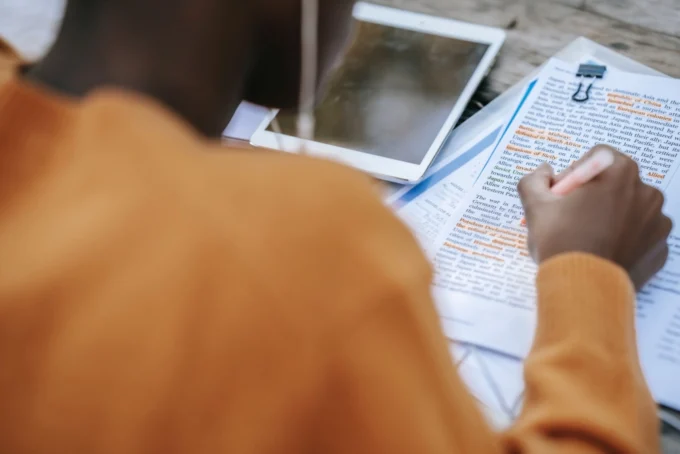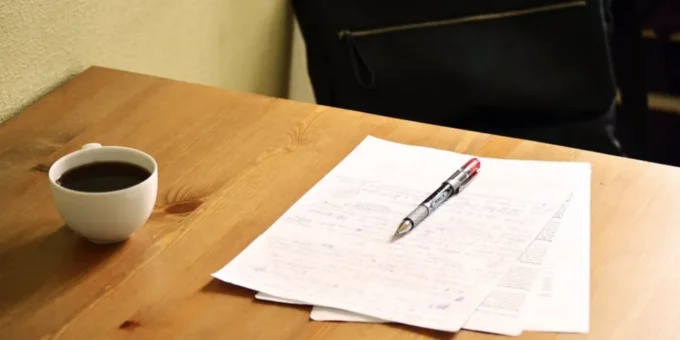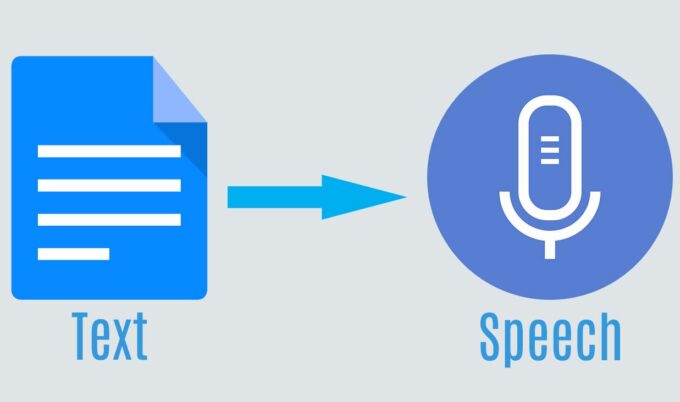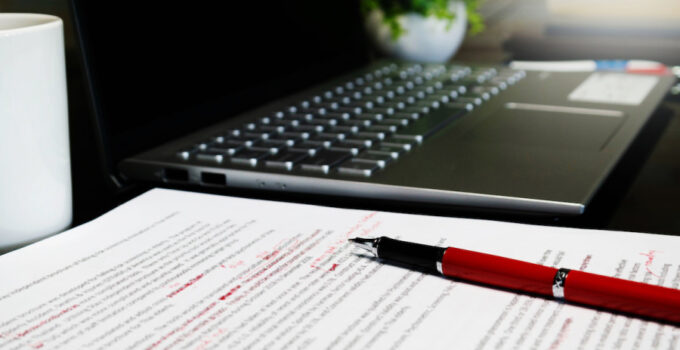Proofreading and editing are requisites of writing success. Whether you’re publishing a book, a thesis, or a blog, what’s going to bring a certain level of credibility to your writing is the support and guidance of an expert editor from your respective field.
Your writing is a direct reflection of you. Even minor errors like typos can be used to negatively judge you. Every “its” and “it’s” counts when you want your work to be recognized.
But not everyone can afford to have professional editors or proofreaders onboard. But fortunately, in this day and age, there are a lot of options to explore. And you should definitely consider getting expert editors on board if your work will be in the public domain.
If that’s you… should you be worried? Let’s find out.
Is it impossible to proofread your own work?

Source: krone.at
Nothing is impossible (making sense of James Joyce’s Ulysses maybe is). Proofreading all by yourself is pretty much possible. But just because it’s doable, doesn’t mean you should entirely rely on your own arguable rectifying abilities. It is a technical skill after all. Apart from that, there are various other reasons proofreading your own work can be problematic.
Sure, you can catch the minor faults like typos. But what about the big picture? When you write, you form a mental image of the meaning you wish to convey. You form a bias that makes the image seem perfect in your mind. But, it may not have culminated so on paper. That’s why you need a fresh pair of eyes to read through your piece.
Proofreading is the most tedious task in every writer’s publishing journey. It may be more tedious than writing itself, and most writers aren’t equipped with the technical aspects of language and grammar. No wonder then, most authors hire professional proofreading services to get the job done.
Rereading your manuscript or academic papers is a sound way to assure the draft has turned out the way you wanted to. Despite reading through the manuscript multiple times you won’t be able to catch all the faults which slip in there naturally because of the bias we’ve just talked about.
Now you know why proofreading is important and why you should ideally hire a professional to get the job done. But if you’re a broke student or a part-time indie author on a tight budget, you’re in no position to hire a paid proofreader. What do you do then? You pull out those proofreading glasses.
If you find yourself in such a position, read on. In this article, we give you some tips, curated by experts, to proofread your own work. Use these tips to make your writing top-notch and publish quality content!
Top tips to proofread on your own work:
#1 Ice it

Source: zelst.co.uk
By that, we mean to put it away for a while. Let it thaw a while. Don’t look at your document till you’ve almost forgotten what you wrote in it. Get back to it after a few hours, days, a week, if time permits. You’ll notice that you gained a fresh perspective in due course. Suddenly, the cracks are visible, you find flaws in your arguments, some details missing, and punctuation askew. Now that you have that renewed point of view, you’ll be able to review your work with meticulousness.
It’s very effective. How d’you not notice all those shortcomings in the first go is all that you’ll be wondering.
#2 Partner up

Source: flexjobs.com
You can’t hire a professional proofreader. So what? You can always have someone from friends or family join in for the task. It’s okay even if they aren’t an expert. Simply have them read out your text loudly and take notes wherever they fumble. That’s your queue for making changes at those points.
You can also choose to enlist the help of a fellow writer, who you can ask on writing groups and communities, your personal social media, or even your workplace.
#3 Print it out

Source: herzing.edu
Hand over a physical copy for your partner to be read out loud. Reading from a screen is harder, less efficient and less rewarding. It only makes proofreading an even more complex task for a novice to do it solo.
You will perceive your text in a whole new light even if it gives you the same meaning. It will become easier to notice oddities and irregularities in the text.
Again, attention to detail increases when things are magnified. An enlarged font will make the missed out errors to start floating for your attention.
Proofreading is not just all about typos and grammar, it’s a whole lot more than that! Changing the layout will give you an idea about how to structure your writing.
#4 Text to speech

Source: rollideo.com
The bottom line is, listening to someone else read your text will help you understand it better. Most computers and mobile devices have this feature in-built. So, if you’ve got no one you can reach out to. Use text-to-speech applications to take notes and make the changes.
There are various software and applications which can scan your text for errors. All word processors come with spell-checkers, but that’s as far as they go. For more sophisticated algorithms that will conduct a higher level scan of language check, check out this article. The free versions operate like elementary level English school teachers, basic spelling and grammar level checks. While the paid ones are like English Master’s college professors, they give you detailed feedback about what went wrong and how to fix it!
We’ll never know if James Joyce had Ulysses proofread or not. If he did, then praise the proofreaders who were brave enough to embark on this Herculean venture!
But we know for certain that you can make your writing a rewarding reading experience for everyone who comes across your prose. All you need is a good round of proofreading.
If you wish to enlist an expertly trained editor’s help in getting your work upto the mark, visit www.papertrue.com. All the best!







